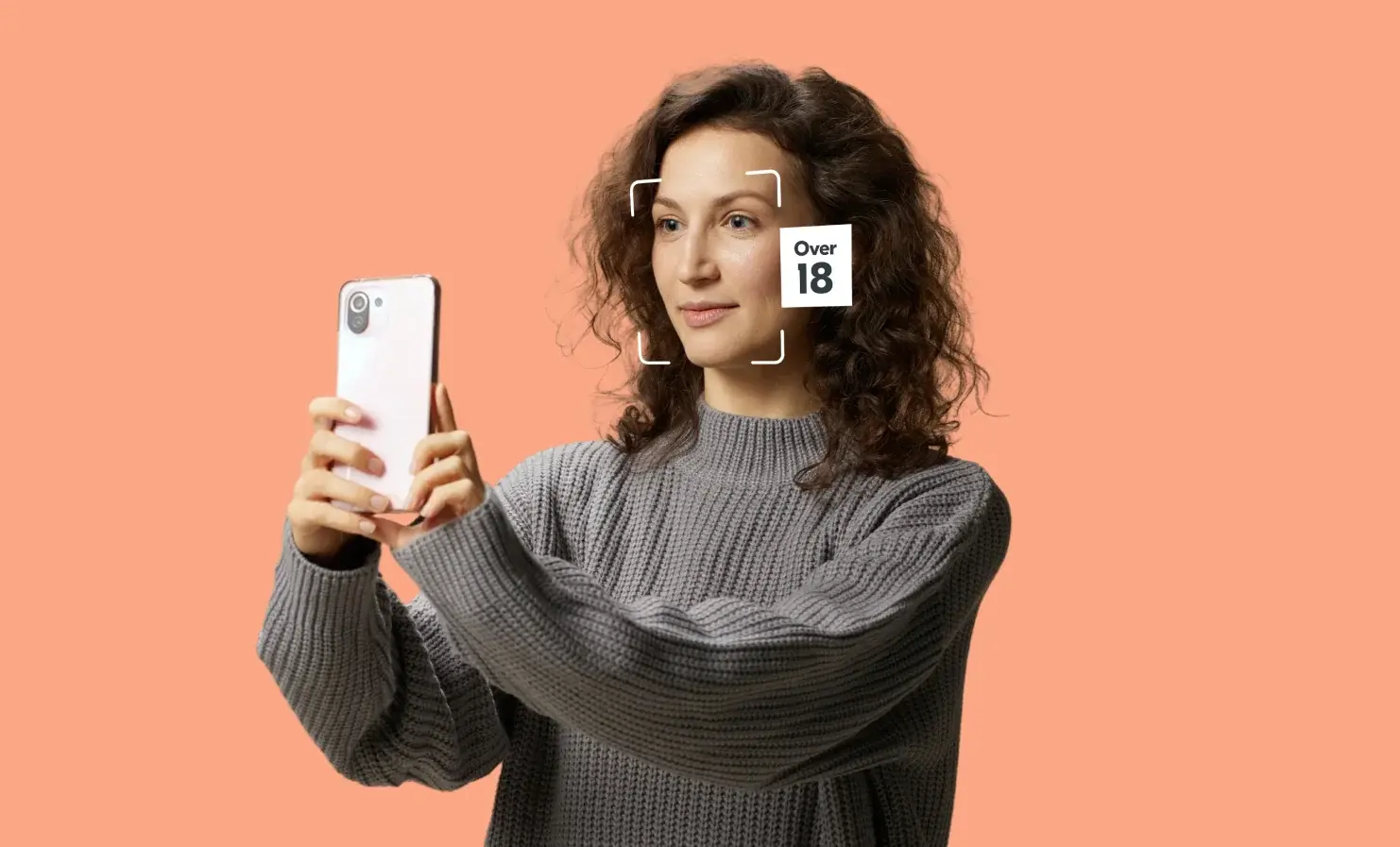
The BritCard debate heats up as digital ID adoption grows
Just a few months after the UK Government introduced a voluntary digital ID wallet, some influential voices within Labour are already pushing to make it mandatory. They’ve also suggested rebranding it as the ‘BritCard app’ or ‘BritCard digital ID wallet’.
In the 2 years between late 2025 and late 2027, I believe many (potentially a majority) of the UK’s 57 million adults will get a UK Government digital ID wallet. From late 2025, users will be able to access their mobile driving licence details. By the end of 2027, they’ll be able to access their passport details too.
But there will still be some citizens who won’t have active (unexpired) driving licences or passports. They’ll find it increasingly difficult and expensive to prove their age, identity, status or entitlement – both remotely and sometimes face-to-face.
To support those on low incomes, the Government could issue means-tested, subsidised (or even possibly free) passports to these citizens. Still, some may choose not to get a passport, driving licence or UK Government digital ID wallet at all.
Supporters of a mandatory BritCard, such as Labour Together, are keen for one national BritCard to be issued to both UK citizens and eVisa holders. This would mean that anyone with permanent or temporary right to work, study or live in the UK must use it to prove their identity and make it harder for eVisa holders to overstay (and remain working, studying or renting in the UK).
There will undoubtedly be a strong debate. Privacy groups will raise concerns about state surveillance and Government overreach. Other opponents will worry about high running costs and the risks of security breaches. Groups in favour will argue that a BritCard could deter illegal immigration and overstayers, whilst also making it much harder for criminals to commit identity fraud (and oft-related financial fraud).
Some in the current Government may view a mandatory BritCard as a step too far for this Parliament. But, before the end of this Government in 2029, a large percentage of UK citizens are likely to be using the soon-to-be-launched voluntary Government ID wallet, alongside one or more private sector ID wallets, certified by the UK Government. Widespread adoption is very likely to measurably reduce identity fraud for many of these citizens.
With current public support for digital ID cards and digital right to work credentials reportedly at 80%, at least one political party could take the big step to campaign on a manifesto pledge to introduce the mandatory use of UK Government national ID wallets (and perhaps even a physical ID card, regardless of whether it is ever branded a BritCard).
As in many countries, reusable digital ID in the UK is going mainstream – not just as a topic for political debate, but also as a digital tool that a growing number (and potentially a majority) of UK citizens will choose to adopt over the next 2-3 years. 5.9 million UK individuals have already voluntarily downloaded the Yoti reusable Digital ID wallet to prove age and identity, and to securely store passwords and credentials.
Yoti outperforms humans in experiment with The Times
The Times recently put Yoti’s facial age estimation technology head-to-head with human estimators and the results are super clear: Yoti came out on top. It comfortably beats even the most accurate individual human estimator.
- Humans correctly estimated just 22.2% of 14-17 year olds as under 18, whilst Yoti correctly estimated 81.5%.
- Yoti did not estimate ANY under 18 year olds to be over 25 – the challenge age used by shops for alcohol sales.
- Yoti’s margin of error for this small sample size (137) of 14-70 year olds was 2.3. This aligns with our current live September 2024 model and results in the most recent white paper (2.5 years for ages 6 to 70, using a diverse test sample of 120,000 people).
These results are not surprising. The US National Institute of Standards and Technology (NIST) has tested the world’s top facial age estimation vendors and ranks Yoti #1 globally for estimating the crucial age bracket of 13-16 year olds.
Our even more accurate June 2025 model is coming out soon, in which:
- 99.3% of 13-17 year olds are estimated to be under 21.
- The mean absolute error (MAE) for an equal number of 15, 16, 17 and 18 year olds is now just 1.0 years (down from the current 1.07 years in the live Sep 2024 model).
- For 16 year olds specifically, the MAE is just 0.87 years. The new model estimates 42% to be aged 16, 90% to be between ages 15 and 17, and 97% to be between ages 14 and 18.
- The overall weighted average MAE for ages 6 to 70 dropped 6.2% to 2.38 years from 2.53. Statisticians will recognise this is a huge achievement given the average age of 6-70 year olds is 38.5.
This means that, with Yoti, businesses can use a threshold as low as 21, or even 20, to perform highly effective over 18 age checks online, with very few young adults needing to fall back to other proof of age methods, such as identity documents, for additional checks.
Our customers, both big and small (as well as some regulators) want Yoti to continue improving accuracy for young teenagers. This is to help them with over 16 and over 13 age checks. We are investing heavily to meet their needs, with our July 2025 model expected to be even better than the not-yet-published June 2025 model.
Watch this space for our next white paper, coming soon 👀
UK digital ID adoption set to surge under the Data Act
Hot off the press: The UK’s parliamentary ‘ping pong’ has finally ended. The snappily-named Data (Use & Access) Act has passed the House of Lords and now has Royal Assent.
The Government plans to update alcohol licensing laws (under secondary legislation) before Christmas. This change will allow individuals to use their phones for digital proof of age at up to around 200,000 licensed premises. As a result, adoption of voluntary, privacy-preserving digital ID is set to rise rapidly over the following 3 years.
In May, over 100,000 individuals in the UK downloaded the Yoti Digital ID app wallet – second only to France, where downloads of Yoti have rocketed since the introduction of mandatory age checks for online porn in mid-April. UK downloads are now nearing 6 million.
Predicting adoption volumes is hard, but my personal view is that by the end of 2028:
- 30-40 million of the UK’s 57 million adults will have the UK Government digital ID wallet on their phones.
- Around 15 million of the roughly 26 million adults owning iPhones will have added passport- or driving licence-verified ID to their Apple wallets.
- Another 15 million of the 26 million adults owning Google ‘Android’ phones will do the same with their Google wallets.
- Approximately 12-15 million adults will have a UK Government-certified Yoti ID wallet.
- Several million more adults will use alternative UK Government-certified ID wallets that are either app-based or browser-based.
Non-Apple and non-Google ID wallets will need to be networked to maximise proof of age and identity utility for those individuals and the businesses they want to interact with.
Individuals are likely to switch from a non-networked, less functional free ID wallet to a networked, more useful free ID wallet. This is because the switch will be easy and will only take a few minutes. As a result, most ID wallets will have to be networked.
Many of the projected 30-40 million adopters will likely use both the Government ID wallet and one or two certified private sector ID wallets. A healthy percentage of these 30-40 million adults, particularly those aged between 18 and 39, will have adopted their ID wallets by the end of 2026.
The impacts of high adoption of certified digital IDs in the UK will be manifold and profound.
Some will disagree, but I believe high adoption of voluntary digital IDs will empower individuals, make their lives easier and lower costs – all while helping protect both individuals and businesses from identity fraud.




